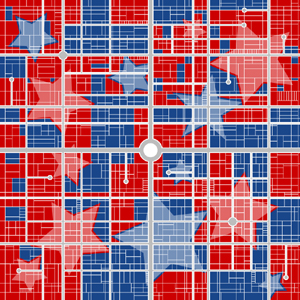SCOTUS will decide case that could strip state courts of power to review congressional voting maps

Image from Shutterstock.
The U.S. Supreme Court on Thursday agreed to consider the power of state courts to regulate federal elections under a theory known as the "independent state legislature" theory.
The high court agreed to consider the issue in a North Carolina case, Moore v. Harper, in which the North Carolina Supreme Court rejected the legislature’s congressional map as a partisan gerrymander, report SCOTUSblog, the New York Times and the Washington Post.
According to the Brennan Center for Justice at the New York University School of Law, the independent state legislature doctrine is a “dubious legal theory.” If it is adopted, it “would give state legislatures wide authority to gerrymander electoral maps and pass voter suppression laws. It has even been used as political cover to try to overturn elections.”
The independent state legislature doctrine is based on two clauses in the Constitution. The elections clause, at issue in the North Carolina case, provides that “the times, places and manner of holding elections for senators and representatives shall be prescribed in each state by the legislature thereof.”
A separate provision, the presidential electors clause, says, “Each state shall appoint, in such manner as the legislature thereof may direct, a number of electors.”
Proponents of the independent state legislature theory contend that the clauses “give state legislatures exclusive and near-absolute power to regulate federal elections,” the Brennan Center said. “The result? When it comes to federal elections, legislators would be free to violate the state constitution and state courts couldn’t stop them.”
The North Carolina Supreme Court had rejected the doctrine, saying it was “repugnant to the sovereignty of states, the authority of state constitutions and the independence of state courts.” It rejected a map that would likely have given Republicans two more seats in Congress and ordered the drawing of a new map. A trial court adopted a map drawn by outside experts.
The Supreme Court had refused an emergency request to reinstate the original map in March. The dispute is now back before the court on the merits. The case will be argued in the new term that begins in the fall.



